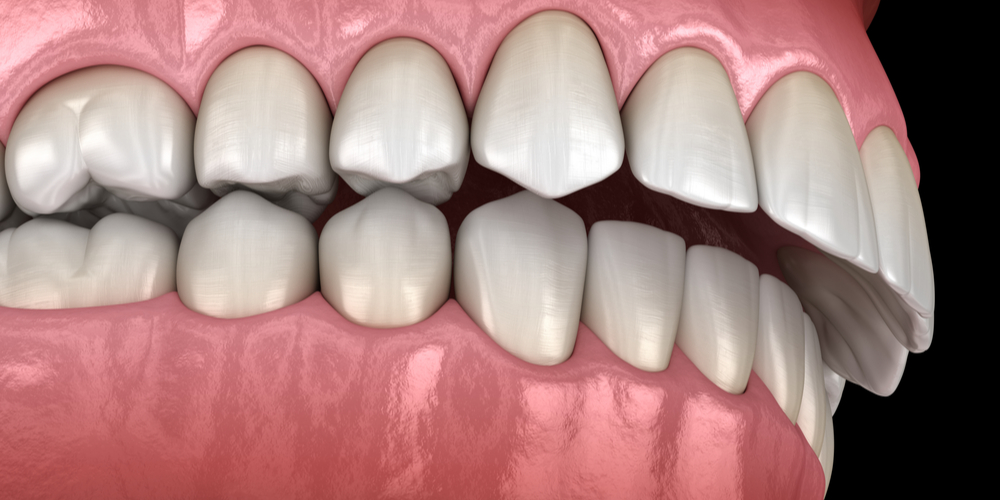
An overbite is a very common orthodontic condition that occurs when the upper teeth overlap the lower teeth. If the case is none too severe and it has minimal effects on functionality and appearance, the patient may sometimes choose to live with the condition, but if it is especially deep, braces treatment may be recommended. If the overbite is particularly severe, the dentist may even suggest oral surgery.
What causes an overbite?
Overbites are more often than not inherited and most people will have them due to a small jaw. There are other causes, however, including prolonged use of baby bottles and dummies, thumb-sucking, poor oral hygiene during childhood and early loss of teeth.
What are the symptoms?
If you have an overbite, you will notice that your upper teeth overlap your lower teeth when your jaw is in a relaxed position. There are varying degrees of overlap, with some people having minor overbites and others more serious issues. The main symptom of an overbite is the appearance of the teeth, though overbites can also cause problems with the function of the teeth. If functionality is impaired, the lower teeth can become worn due to the upper teeth constantly making contact with them.
How is the condition diagnosed?
After an initial examination the dentist will often perform an x-ray to gauge the degree of overbite. From this, the dentist will be able to recommend a suitable method of treatment according to your individual case.
What are the effects of an overbite?
Some people with very minor overbites do not experience any problems. However, in many cases, an overbite can result in problems related to the function of the teeth. The individual may experience problems with chewing and cleaning their teeth, and they may also notice that their lower teeth start to become worn, which is a result of contact between the upper and lower teeth. Such contact can also bring about an increased risk of periodontal problems. A severe overbite may have a significant impact on the appearance of the teeth, which can in turn affect the individual’s self-esteem and confidence.
What treatments are available to correct an overbite?
Overbites are fairly easy to treat and treatment is usually carried out between the ages of 10 and 14. There is a variety of orthodontic treatments that can be used, including Fixed braces, Invisalign braces (for mild to moderate cases), Lingual braces (for minor cases affecting the front teeth) and Damon braces (for moderate to severe cases). Adult braces are becoming increasingly common, with improved treatment times and discreetness available from many of the modern systems. These and the comfort of treatment available are the reasons why so many adults are now choosing to correct their overbites.

